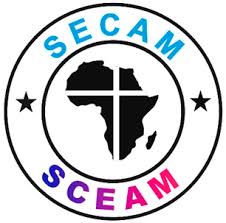SECAM: Faith and Ethical Communities Advocate for Reparative Justice for Africa

Sr. Jecinter Antoinette Okoth, FSSA
In a bid to address the deep-rooted impacts of the Trans-Atlantic Slave Trade, slavery, colonization, and systemic inequalities that continue to affect the development of the African continent, religious and ethical leaders from across the world have gathered in Ethiopia to advocate for healing, and long-term solutions to the damages caused by these past injustices in the continent.
In a statement from Symposium of Episcopal Conferences of Africa and Madagascar (SECAM), the two-day workshop slated for 27 and 28th February, “Seeks to enhance awareness of reparative justice within faith communities and the public.” Besides, the workshop “aims to establish a coalition of faith-based and ethical organizations dedicated to this cause and to develop policy recommendations and an action roadmap in partnership with the African Union.”
The workshop expected to bring together African Union (AU) officials, diplomats, religious leaders, scholars, human rights advocates, and policymakers is organized by SECAM, the AU Catholic Chaplaincy, the Heavenly Culture, World Peace, Restoration of Light (HWPL), Pan African Conference on Ethics and Bioethics (COPAB), Interreligious Association for Peace and Development (IAPD-Africa), United Religions Initiative (URI), and other key partners, in collaboration with the Citizens and Diaspora Directorate (CIDO) of the African Union Commission.
To ensure a fair, just, and dignified future for Africa Faith-based and Ethical communities, are set to work together towards concrete action and meaningful change. In this way the SECAM statement reads, “For centuries, Africans and people of African descent have endured the consequences of historical injustices, including economic disenfranchisement, social marginalization, and psychological trauma. The legacies of slavery, colonization, apartheid, and genocide continue to impact communities today. Recognizing this, the AU is dedicated to addressing these issues through comprehensive policies, advocacy, and global engagement.”
The SECAM officials noted that Ghana had previously made significant contributions to this cause through initiatives like the 2019 “Year of Return.” Hence the workshop is meant to build “on such efforts by amplifying the voices of faith-based and ethical organizations in the pursuit of justice.”
The worshop taking place at the Kuriftu Resort African Village and the African Union Commission in Addis Ababa, Ethiopia has been aligned with the AU’s 2025 theme, “Justice for Africans and People of African Descent through Reparations.”
Organizers of the workshop belive that by collaborating with the AU and global stakeholders, these organizations can play a transformative role in advancing justice and restitution for Africans and people of African descent.


